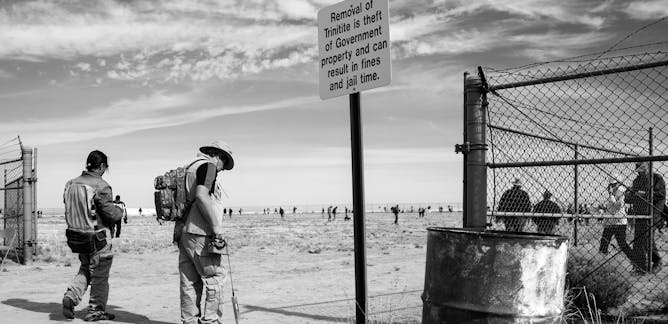|
|
|
|
Nau mai haere mai and welcome to your latest newsletter.
Anyone who has gone grocery shopping over the past three years will have noticed gaps on the supermarket shelves. While global events such as the pandemic and war in Ukraine have had an impact on some product availability, unexpected events like Cyclone Gabrielle and flooding in Tairāwhiti are also to blame. These local disasters have highlighted the kinks in our supply chains – and the vulnerabilities of our food system.
In our lead story this week, agronomist Alan Renwick argues that we need to be improving the resiliency of our domestic food system. This will include innovation in production as well as a more varied approach to how we transport food around the country.
As Renwick notes, “The current supply chain model is totally reliant on the uninterrupted movement of products across the country through our transport network – in theory, comprised of road, rail, sea and air links. In practice, just under 93% of our freight goes by one mode – road.”
When roads are damaged by extreme weather events, whole regions can be cut off from getting food in and out.
But all is not lost. Renwick outlines ways we can get our food systems back on track – including better use of exisiting rail and costal networks.
You will find more to read here and on our homepage, including a look at how in Greta Gerwig’s Barbie Land the matriarchy can be just as bad as the patriarchy. Many thanks for reading and for your ongoing support. Until next week, mā te
wā.
|

|
Debrin Foxcroft
Deputy New Zealand Editor
|
|

Alan Renwick, Lincoln University, New Zealand
New Zealand’s food system – from production to delivery – has been built around efficiency rather than resilience to climate change and natural disasters. But there are solutions.
|

Richard Shaw, Massey University
From commerce to public policy, cuts to New Zealand’s university humanities departments will have repercussions well beyond the so-called ‘ivory towers’.
|

Jennifer Lees-Marshment, University of Auckland
Having interviewed advisers to past and present prime ministers in Australia, Britain, Canada and New Zealand, my new research shows how crucial it is to recruit and train staff – before an election.
|

Abhishek Mukherjee, University of Waikato; Paresha Sinha, University of Waikato; Paul David Richard Griffiths, EM Normandie
New Zealand’s central bank is taking a long, hard look at cryptocurrencies and the role they will play in future business. Here’s what businesses had to say about our digital future.
|

Holly Thorpe, University of Waikato; Julie E. Brice, California State University, Fullerton
A sensational opening match win by New Zealand proves the doubters wrong and sets the stage for a milestone Women’s World Cup.
|

Katie Pickles, University of Canterbury
Are you for or against Barbie? Writer-director Greta Gerwig piles irony upon irony to finally render the question completely redundant.
|

John G Conran, University of Adelaide; Daphne Lee, University of Otago; Uwe Kaulfuss, Georg-August-Universität Göttingen
Foulden Maar is one of only two sites in New Zealand that preserve fossils showing ecological interactions and features such as eyes, skin, stomach contents and original colour patterns.
|

Gail Pacheco, Auckland University of Technology; Lisa Meehan, Auckland University of Technology; Thomas Schober, Auckland University of Technology
The effect of NZ’s abysmal literacy and numeracy rates can be seen in employment, health and justice outcomes. Education policy must address improving in these basic skills.
|
From our foreign editions
|

Lise Lafferty, UNSW Sydney; Carla Treloar, UNSW Sydney; Kerryn Drysdale, UNSW Sydney
Most people leaving prison face an uphill battle of service navigation that is too often deficit-focused, intentionally seeking out the failures of the individual and centred on punitive responses.
| |

John Buchanan, University of Sydney
There is effectively a class of Australian workers who don’t get holiday and sick pay, no matter how long or regularly they work, simply because their employer deemed them “casual” when they began.
|

David Mednicoff, UMass Amherst
Benjamin Netanyahu has helped reshape Israel and the broader world in profound ways. And there’s a dark side to those changes.
| |

Evan Williams, University of Newcastle
Some foods can affect how well your lungs function, how often you have asthma attacks and how well your puffer works. Here’s what to eat if you have asthma.
|

Dominic Lees, University of Reading
AI might not yet be able to create leading performances from an actor’s likeness but the jobs of those in the background are far less safe.
| |

Bill Laurance, James Cook University
In recent years, Indonesia has slashed the rate of deforestation. That’s why this new crackdown on researchers is so surprising.
|

Muhammad Zulfikar Rakhmat, Center of Economic and Law Studies (CELIOS); Yeta Purnama, Center of Economic and Law Studies (CELIOS)
Mixue’s rapid growth is more than just a business success story. It helps China’s efforts to promote a positive image in Indonesia.
| |

Kerstin Bree Carlson, Roskilde University
Deliberate policies set in place by European states and supported by the European Union lead directly to migrant deaths.
|

Jack L. Rozdilsky, York University, Canada
The Christopher Nolan film ‘Oppenheimer’ is set to become a summer blockbuster. But one of the featured sites in the movie is a sobering reminder of the horror of nuclear war.
| |

Stephen Onyeiwu, Allegheny College
Fixing Nigeria’s food inflation goes beyond declaring a state of emergency.
|
|
|
| |
| |
| |
| |
|
|
|
|
|
|
|